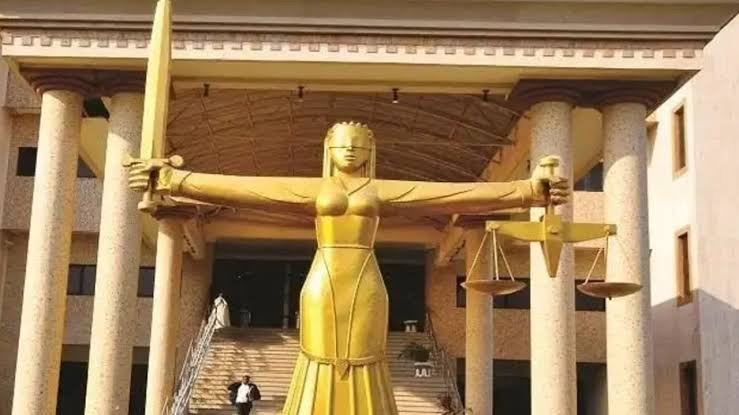Justice Yellin Bogoro of the Federal High Court in Lagos on Tuesday dismissed a suit filed by Lagos-based lawyer Malcolm Omirhobo challenging the use of Arabic inscriptions on naira banknotes.
According to the judge, the Central Bank of Nigeria (CBN) is empowered by Section 53(1) of the Banks and Other Financial Institutions Act (BOFIA) to print, design, and issue banknotes and bad faith must be proven before legal action can be brought against the acts or omissions of the Federal Government or the Supreme Court.
The court also held that in the challenge to the Arabic inscriptions on naira banknotes, the CBN had failed to prove that it had exercised its powers in bad faith.
Omirhobo filed a lawsuit against the CBN in January 2020, alleging, among other things, that Arabic is not one of Nigeria’s four official languages, namely English, Yoruba, Hausa, and Igbo.
In the suit, the lawyers argued that Arabic is not indigenous to Nigeria and that the use of the language in our currency violates certain provisions of the Constitution.

In its response, the CBN filed a preliminary objection, arguing that Omirhobo has no standing to sue. The bank also filed a defence. Three other stakeholders were joined in the suit as defendants; Muslim Rights Concern Corporate Trustees (MURIC), its founder Ishaq Akintola, and Kebbi-based lawyer Umar Kargo.
After hearing all defendants in May 2024, the court handed down its verdict on Tuesday.
In his judgment, Justice Bogoro initially rejected the CBN’s preliminary objection and found that Mr. Omirhobo has locus standing to sue as he is a taxpayer.
The court, however, ruled that Omirhobo could not prove that the CBN acted in bad faith, i.e. Mala Fide, and dismissed the suit accordingly.
Following the judgment, Mr Omirhobo said he would apply for a certified copy of the judgment and examine it to decide on his next course of action.

The lawyer also noted that the court had noted that Nigeria is a multi-ethnic and religious country and that no ethnic group or religion is superior to another.
The lawyer maintained that the court had ruled that Arabic is not an official language of Nigeria and advised that in the interest of harmonious coexistence of Nigerians, perhaps it was time for the Central Bank of Nigeria and the government to remove the Arabic inscription from the 200, 500 and 1000 naira notes as it had already been removed from the 5, 10, 50 and 100 naira notes.
MURIC reacted to the ruling, describing it as far-reaching.
Akintola in a statement said; Once again, the Nigerian judiciary has demonstrated courage, intellectual excellence, and legal rigour. This judgment is far-reaching, profound, instructive, and monumental.
“Omirhobo’s approach is not only naïve, it is pedestrian and kindergarten. This suit against Arabic on naira manifests acute desertification of religious tolerance, we have been vindicated.”


































